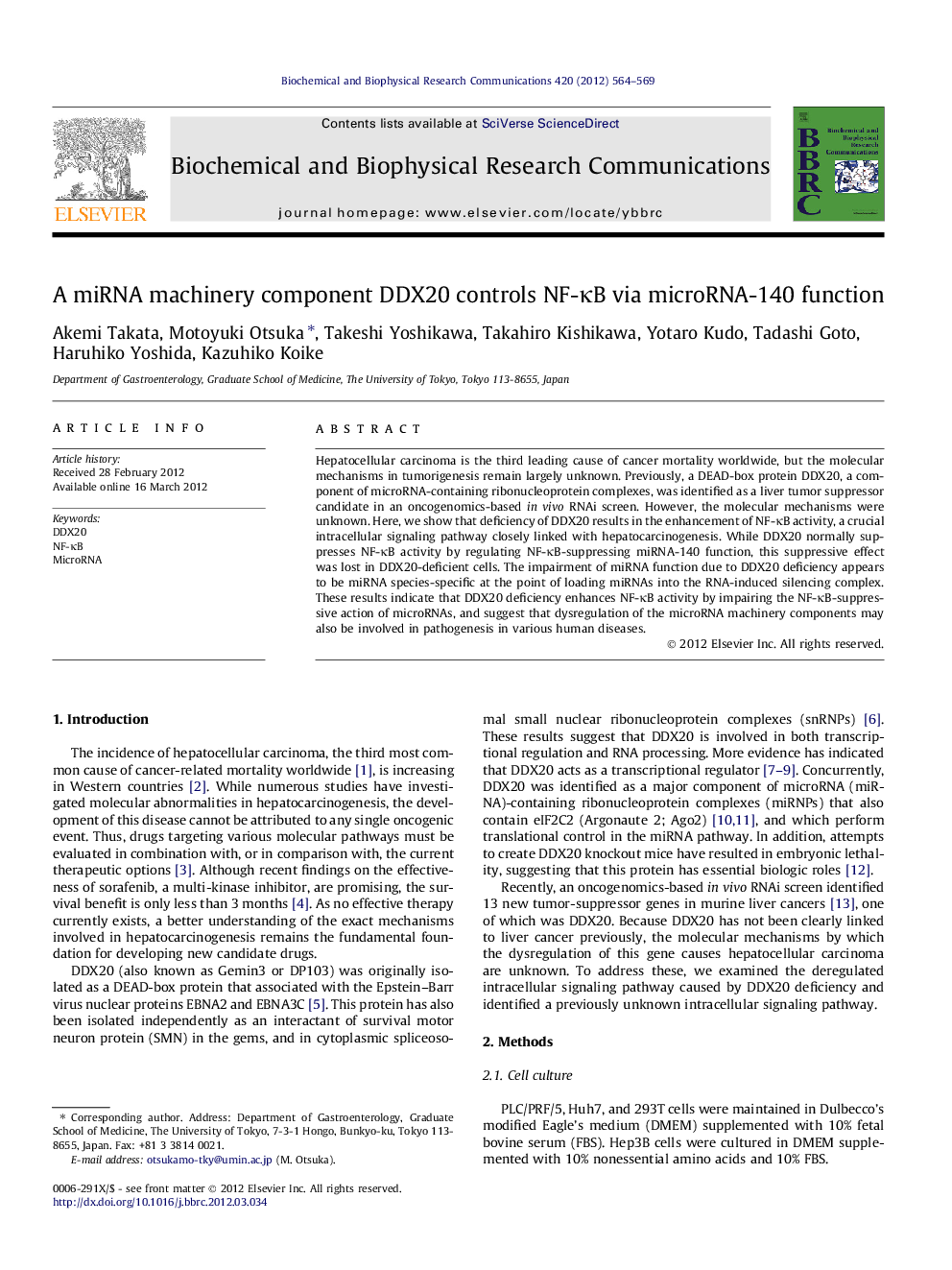| Article ID | Journal | Published Year | Pages | File Type |
|---|---|---|---|---|
| 1929807 | Biochemical and Biophysical Research Communications | 2012 | 6 Pages |
Hepatocellular carcinoma is the third leading cause of cancer mortality worldwide, but the molecular mechanisms in tumorigenesis remain largely unknown. Previously, a DEAD-box protein DDX20, a component of microRNA-containing ribonucleoprotein complexes, was identified as a liver tumor suppressor candidate in an oncogenomics-based in vivo RNAi screen. However, the molecular mechanisms were unknown. Here, we show that deficiency of DDX20 results in the enhancement of NF-κB activity, a crucial intracellular signaling pathway closely linked with hepatocarcinogenesis. While DDX20 normally suppresses NF-κB activity by regulating NF-κB-suppressing miRNA-140 function, this suppressive effect was lost in DDX20-deficient cells. The impairment of miRNA function due to DDX20 deficiency appears to be miRNA species-specific at the point of loading miRNAs into the RNA-induced silencing complex. These results indicate that DDX20 deficiency enhances NF-κB activity by impairing the NF-κB-suppressive action of microRNAs, and suggest that dysregulation of the microRNA machinery components may also be involved in pathogenesis in various human diseases.
► DDX20 suppresses NF-κB activity. ► DDX20 preferentially loads miRNA140-3p into RISCs. ► DDX20 deficiency results in the miRNA140-3p functional impairment. ► DDX20 deficiency results in the enhancement of NF-κB activity.
